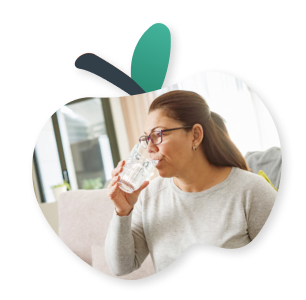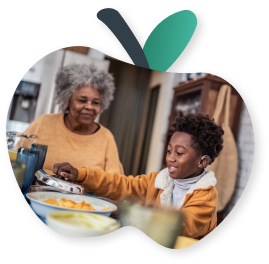Nourishment
Helps your brain, muscles, and digestion11
Strengthens your immune system12
Increases energy levels13
Improves mental health14
Healthy Eating
Helps your brain, muscles, and digestion11
Strengthens your immune system12
Increases energy levels13
Improves mental health14
Things You Can Try
Stay hydrated
Time your meals thoughtfully
Plan for healthy meals and snacks
Slow down
More Resources
and Support
11 Benefits of Healthy Eating for Adults | Nutrition | CDC

Be Well WA is an initiative created by the Washington State Department of Health to help everyone in Washington live healthy and make positive changes in our lives, families, and communities.
We believe well-being is for everyone, no matter your age, budget, ability, or time constraints. For interest in partnering please visit doh.wa.gov/BeWellWA.


